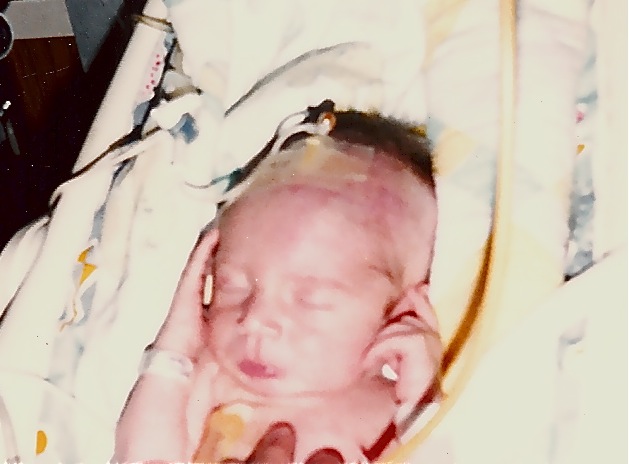
For the past few weeks, National Public Radio (NPR) has been airing a series called The Impact of War. While listening to several episodes that described the symptoms of PTSD in returning vets, the similarities to our son Allen’s PTSD symptoms (caused by early, repeated medical traumas from 1982 – 1986) were striking.
An Interview with General Eric Shinseki
In a November 13 interview with retired General Eric Shinseki, who is head of the Department of Veterans Affairs, he talked about an encounter with veterans during a recent speaking engagement. When he asked if any of them suffered from PTSD, no one said anything. So he asked the following questions:
- How many of you have a little trouble sleeping at night?
- Are you overly vigilant for threats in your own homes?
- Have you been having anger management problems?
Then, Shinseki said, “And then hands go up.”
The Sand Storm: Stories from the Front
In a November 14 episode, a clinical psychiatrist named Judith Broder describes her reaction to The Sand Storm: Stories from the Front, which was written by a Marine and featured monologues of those who served in Iraq and Afghanistan.
“The most horrifying aspect of it was the sense that I got that these were really just ordinary everyday guys, and they had seen things and done things that just shattered their whole sense of themselves,” says Broder. “And that they would all need help.” Broder has since started a program to help veterans recover from PTSD.
PTSD in Medically Traumatized Children
What General Shinseki and Broder said described Allen before he was treated for PTSD. For years, our son displayed the symptoms Shinseki mentioned. And as Broder said, he needed help. Thankfully he found help last December at Intensive Trauma Therapy, Inc., an outpatient clinic in Morganstown, West Virginia.
But Allen isn’t the only person struggling with PTSD caused by medical trauma at a young age. If you have a child exhibiting the symptoms above, and you suspect they are related to some sort of trauma (which can include the death of a loved one, divorce, a difficult move, sexual abuse, physical abuse, medical trauma or adoption) go to their website to learn more. Your child doesn’t need to suffer any more. Life-changing treatment is available that doesn’t require drugs or hospitalization in most cases.
After treatment, Allen turned to me and said, “Mom, I have my life back.”
Those were the sweetest words he’d ever spoken. I hope that one day, your child who is suffering from PTSD will say the same words to you.
Do you like what you see at DifferentDream.com? You can receive more great content by subscribing to the quarterly Different Dream newsletter and signing up for the daily RSS feed delivered to your email inbox. You can sign up for the first in the pop up box and the second at the bottom of this page.



You are most welcome. Keep me posted on what you find out.
that is fascinating, Jolene. Both of my younger kids had a stay in the NICU as infants, and had lead screenings involving repeated blood draws as young children. My son has great difficulty sleeping and has anger issues beyond what most Asperger’s kids seem to have. Thanks for this heads-up.